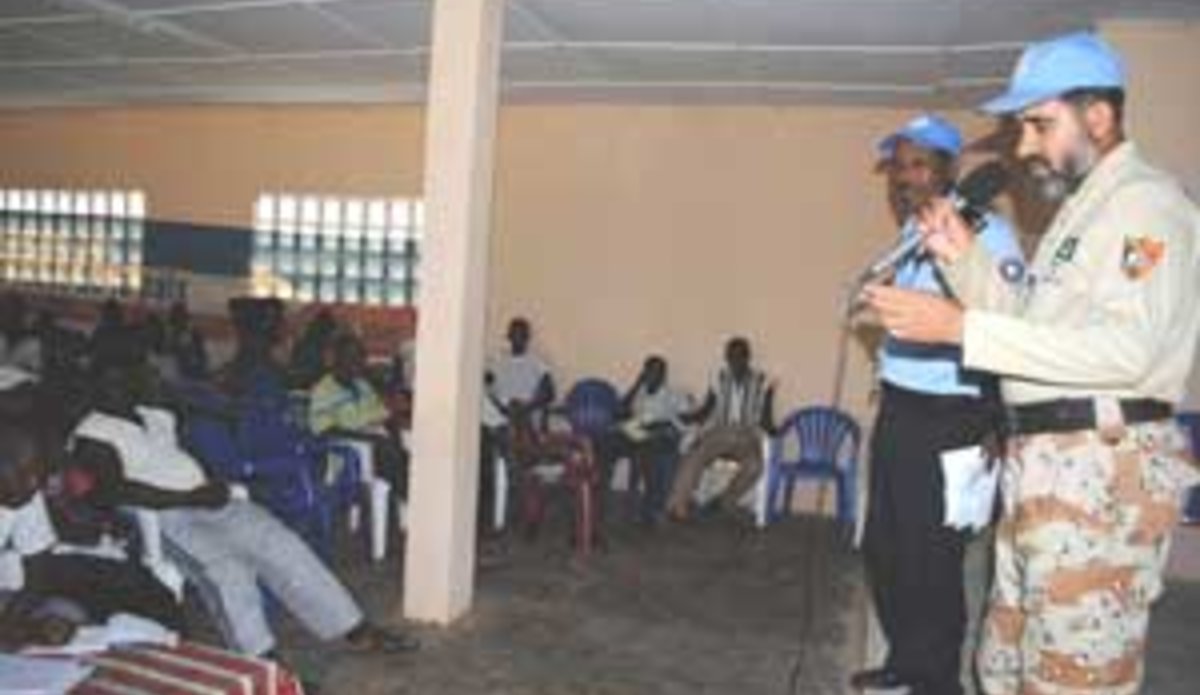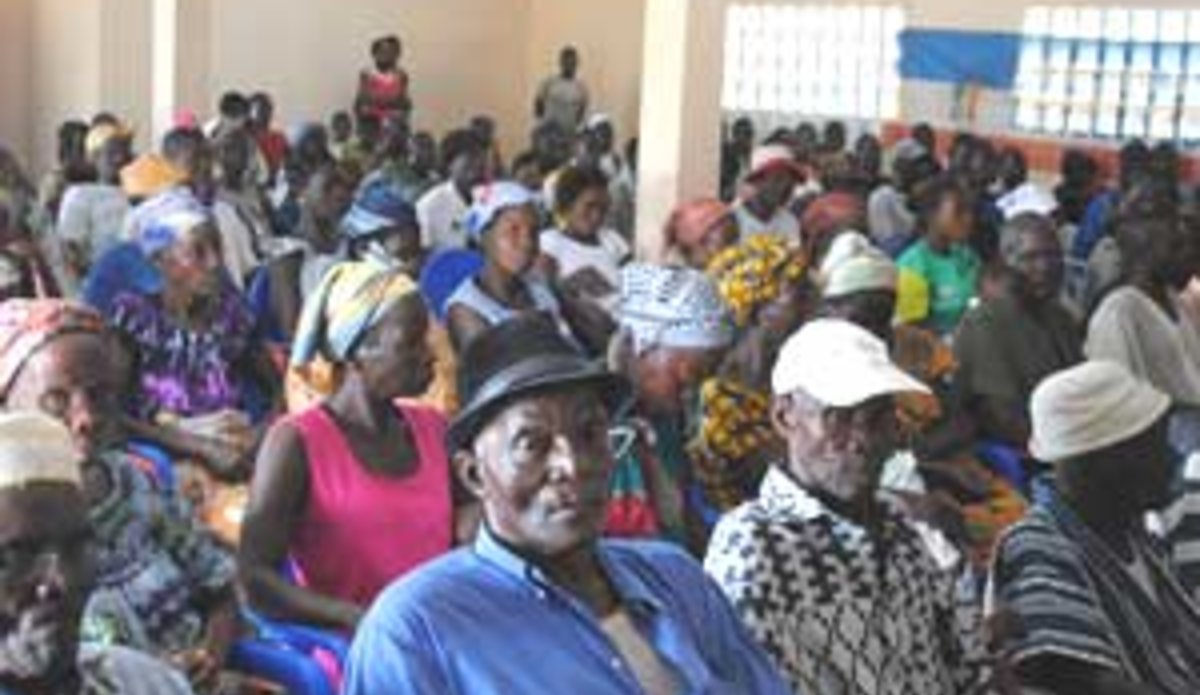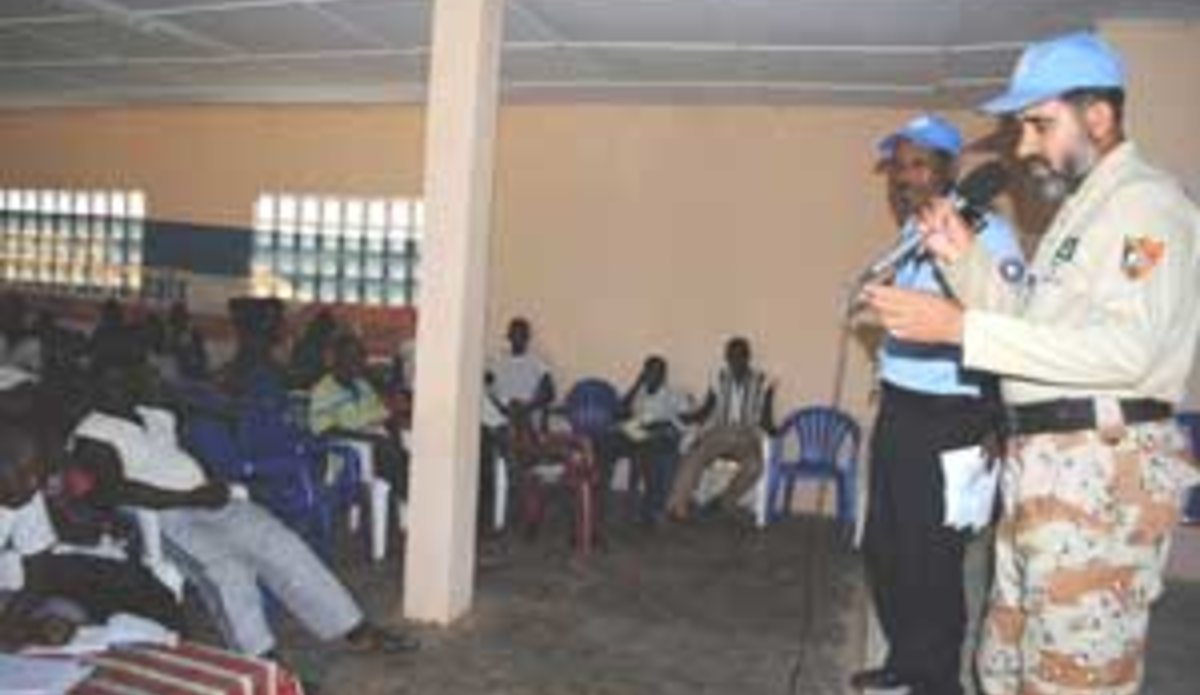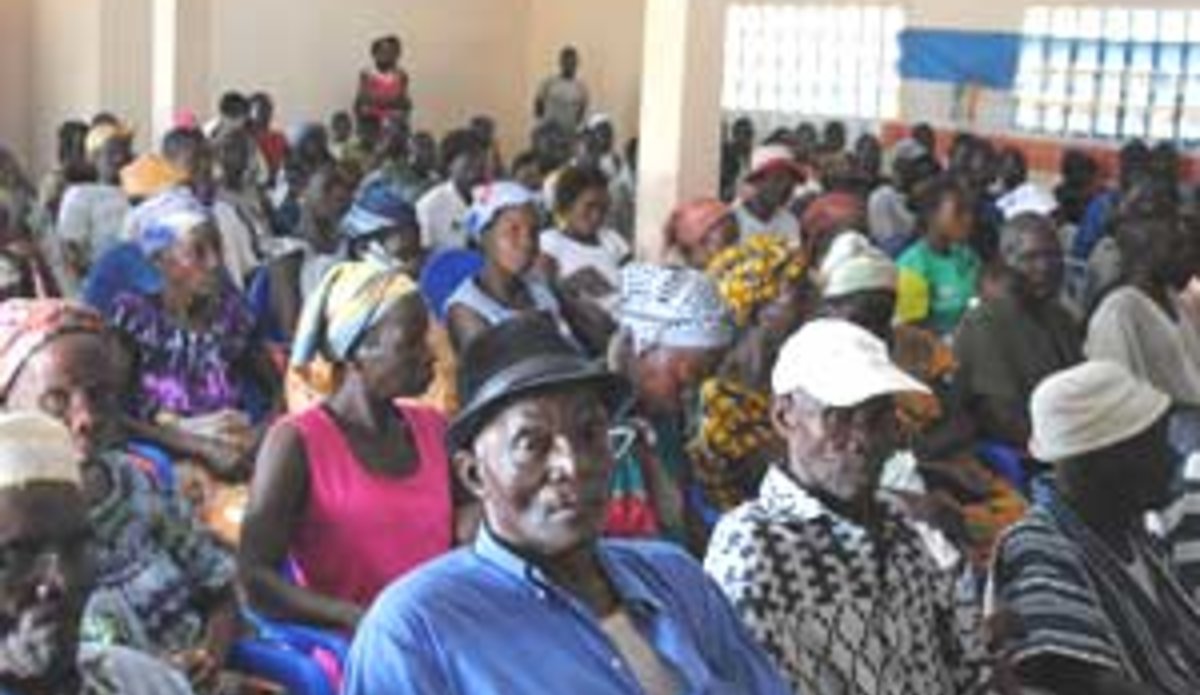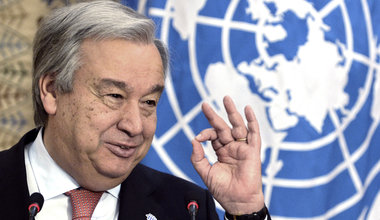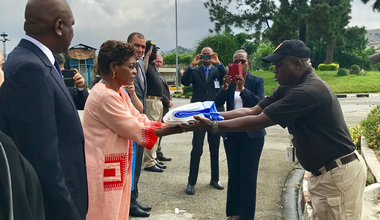ONUCI Tour makes a stop in Goya
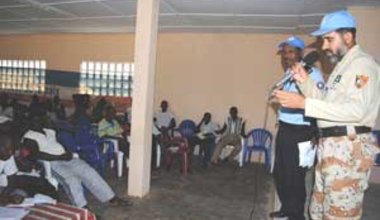
Maintaining social cohesion and peaceful presidential elections in 2015 : these were the two issues among others that were discussed during a sensitisation session organised by the United Nations Operation in Côte d'Ivoire (UNOCI) in collaboration with the Ministries of Agriculture, Health and the Fight Against HIV/AIDS with people in Goya, a village situated at 594 km northwest of Abidjan, on 4 December 2014,
The discussions also focused on the mandate and activities of the UN Mission, land disputes, the Ebola Virus Disease, resolution of inter-community conflicts and presidential elections in 2015 attracted some 100 participants to the youth club in Goya.
Pierre Aby from UNOCI's Public Information Office appealed to participants to strictly respect each others choice of candidate and their right to vote. «You have the right to choose and support the candidate of your choice freely without constraint and without being subjected to any provocation », he insisted.
The representative of UNOCI's Civil Affairs Section, Ramillo Rudaragi, urged people to forget and forgive what happened in the past. « Ivorians must forget the recent past with regard to the post-electoral crisis and work towards peace and reconciliation. Life must go on without any action which is likely to frustrate those near you, » he recommended.
For his part, Augustin Ungi-Iye from the Disarmament, Demobilisation and Reintegration (DDR) Division outlined the principle and the advantages associated with disarmament. « You can hand in your weapons through UNOCI or the ADDR. Once the ADDR is informed of your intention to hand in your weapon, it will inform the gendarmerie so that it can be collected. This will be followed by you being profiled and your reinsertion through your involvement in a project, » he explained. « I urge you to hand in your weapons now so that you can benefit from a project because the DDR process must end in June 2015, » added Mr. Ungi-Iye.
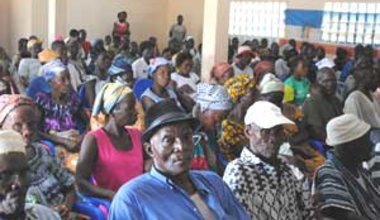
UNOCI Human Rights Officer, Clément Amané Dago, appealed to participants to ensure tha children are looked after because of their vulnerability. He also warned against sexual relations with minors of less than 18 years of age. « You must denounce rape which is recurrent in the Great West. Do not encourage impunity which can be a source of destruction and lack of cohesion, » he added. He also told the gathering that excision can have serious health consequences on victims and everyone should do all they can to put an end to this practice ».
Léandre Nkurunziza of the United Nations Police (UNPOL) outlined the main mission of his section which is to protect people alongside the Ivorian forces. Local forces, he said, also benefit from capacity-building training provided by UNPOL.
The district director of health, Dr. Bahoro Seydou Soumahila, urged participants to be vigilant with regard to the Ebola Virus Disease which is affecting neighbouring countries such as Liberia and Guinea. He stated however that so far there have been no Ebola cases in Côte d'Ivoire. « If you have any signs such a high fever, headaches, sore throat, nausea and vomitting, you must quickly go to hospital, » he advised. « In order to avoid Ebola, do not eat bush meat, do not shake hands with or embrace people and do not touch dead bodies, » he added.
For his part, the district director of Agriculture in Blolequin, Denis Baka, discussed land issues with participants. He said that according to the rural land law of 1998, everyone has a right to own land, including women. Mr. Baka urged people to ensure that they register their land in accordance with the law and obtain a title deed.
The Chief of Goya, Paul Ouly stressed that his village enjoyed cohesion between the different communities. « Everyone is involved in managing the structures and organising activities which is the reason why Goya villagers enjoy peaceful cohabitation, » he added. With regard to the DDR process, Mr. Ouly promised to continue to sensitise villagers so that those who still had weapons can hand them in. He also raise some of the needs of his village with local authorities. « We need help in obtaining land ownership documents and the drilling of wells to meet our needs in terms of water supply, » he concluded.
 UN
UN United Nations Peacekeeping
United Nations Peacekeeping
